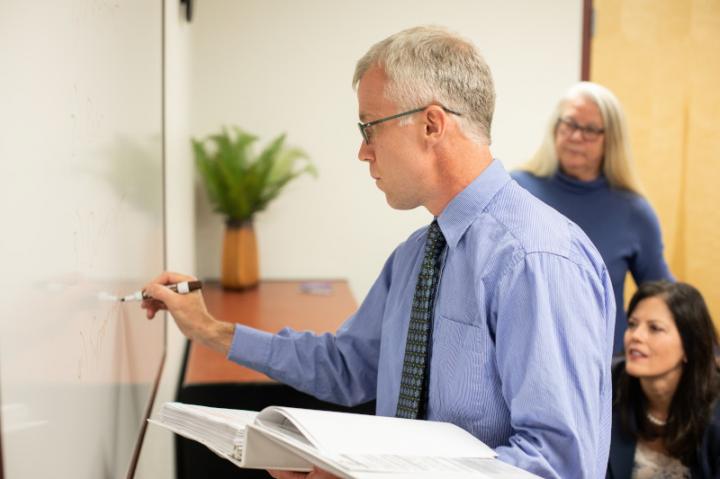
Credit: Northern Arizona University
Sixteen million family members in the U.S. are caregivers for the more than 6 million people living with Alzheimer’s Disease and Related Dementias (ADRD). For many caregivers in rural areas such as northern Arizona, health disparities prevent them from accessing the healthcare and support services they need. COVID-19-related isolation is adding to their burden, potentially contributing to their stress, anxiety and depression, and adversely affecting their physical health.
To address the heightened health risks these caregivers face, a multidisciplinary team of researchers from the Southwest Health Equity Research Collaborative (SHERC), a grant-funded initiative of Northern Arizona University’s Center for Health Equity Research (CHER), received a one-year, $250,000 administrative supplemental grant from the National Institutes of Health. The researchers will study the unique needs of caregivers of persons with ADRD living in northern Arizona, identifying how health and caregiver support resources have changed during COVID-19 and how family caregivers are coping with current COVID-19 related caregiving demands.
“We are interested in the health of diverse caregivers in northern Arizona and the resources they use and need to maintain their physical, emotional and mental well-being,” said NAU Regents’ Professor Julie Baldwin, principal investigator of the study and director of CHER. “Our long-term goal is to develop programs that provide support to caregivers and reflect the unique assets of populations in northern Arizona.”
Co-investigators on the study are Heather J. Williamson, assistant professor in the Department of Occupational Therapy, Michael J. McCarthy, associate professor in the Department of Social Work, Dorothy J. Dunn, associate professor in the School of Nursing, and Evie Garcia, associate professor in the Department of Educational Psychology.
To conduct the study, titled “A Multilevel Examination of Health Equity among Ethnic and Rural ADRD Caregivers,” the researchers are recruiting family caregivers of individuals with ADRD to participate in focus groups and surveys.
The team will produce a report on the health care and social support resources that are available to caregivers in northern Arizona, and participants will receive personalized maps and information on what resources are close to them. Researchers will use results from the project to inform culturally based programs for Hispanic/Latino, Native American and rural caregivers and to promote future policies, practices and research initiatives that support them.
“We hope that community members will find these county-specific reports of caregiver resources helpful as a tool to either advocate for resources that are lacking and to know what things are available to them that they might not have known about previously,” Williamson said.
###
If you are a family caregiver of someone with ADRD living in northern Arizona (Apache, Navajo, Coconino, Gila, Yavapai or Mohave counties) and want to participate in a focus group or survey or both, contact Rachel Bacon at [email protected] or (928) 523-5794.
The project is funded by the National Institute on Minority Health and Health Disparities of the National Institutes of Health (3U54MD012388-03S1).
Media Contact
Diane Rechel
[email protected]
Original Source
https:/




